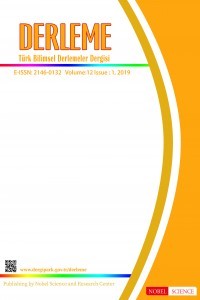Ortadoğu Su Sorununa Ekonomi Politik Açıdan Çözüm Önerileri Üzerine Bir İnceleme
Ortadoğu bölgesi, su bakımından dünyamızın en yoksul ve en sorunlu bölgelerinden biridir. Nitekim bölge, dünya nüfusunun %5’inden fazlasını barındırmasına rağmen yenilenebilir su kaynaklarının %1’inden daha azına sahiptir. Bölgede su sorunu nedeniyle yıllar itibariyle siyasi gerilmeler de gözlemlenmiştir. Bölgede su sorunu çeken ülkelerinin hemen hemen hepsinin denize kıyısı bulunması umut vericidir. Su sorunu çeken ülkelerin bir araya gelip düşük maliyetli su arıtımı için ortak Ar Ge yapması ülkeler arası sinerjiyi arttıracağı gibi bu çeşit Ar Ge ekonomik olarak da fizibil olacaktır. Bu çalışmada kaynak taraması yapılarak Ortadoğu su sorunu hakkında bilgi verilerek su sorununun çözümü için Ortadoğu Ülkeleri arasında işbirliği olanakları (örneğin, ortak Ar Ge’nin yapılması) araştırılarak analiz edilecektir. Bu çalışmanın Ortadoğu ülkelerinin su sorununun çözümünde ekonomik kalkınmanın önünün açılmasına ve ilerde su nedeniyle oluşabilecek siyasi geriliminde önüne geçilmesine katkıda bulunması düşünülmektedir.
An Investigation into the Political Economy Based Solutions for the Middle East Water
Issues
Middle East is one of the poorest regions of our world in terms of water resources. Although, the region hosts 5% of the world’s population, the region has less than 1% of the world’s renewable fresh water resources. In the past years, intensive political tension has been observed in the region due to the water problem. Almost all of the countries that face water problem in the region have access to the sea. The countries suffering from water problems can collaborate in the field of research and development to desalinate sea water. Such collaboration can result in decreased cost of research and development and in increased feasibility of the research and development. Such collaboration can also enhance synergy among the countries. Based on the literature review, this study will provide information on: water issues in the Middle East; solutions for the water problem in Middle East Countries; as well as collaboration possibilities (e.g. joint research and development) among the Middle East countries. This study is expected to contribute to the solution of the Middle East water problem as well as to reduce the political tensions that may occur in the future due to the water scarcity
